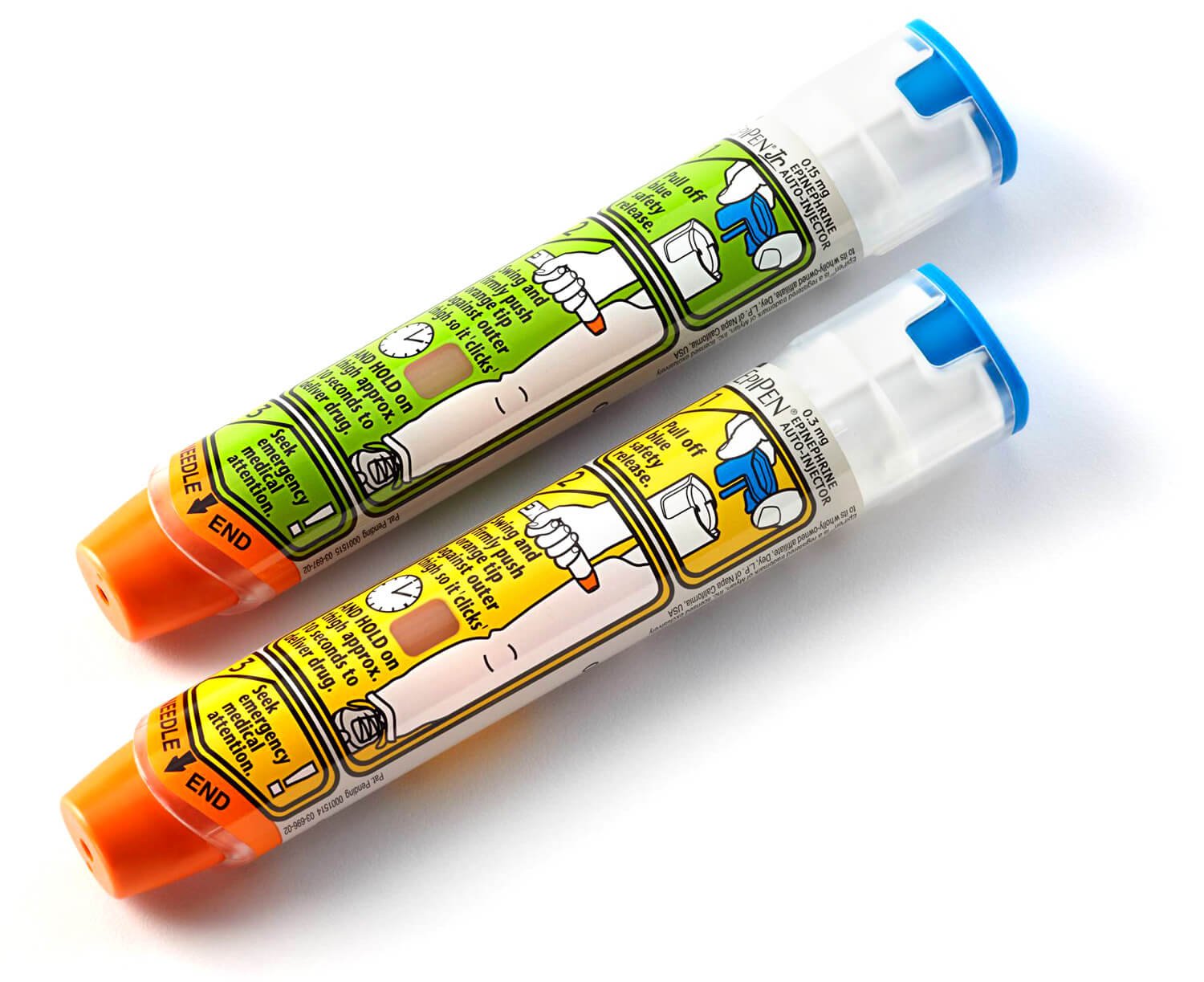Having a life-threatening allergic reaction abroad | Nathan Bloohn - Allergy Interviews Ep #4
For the fourth instalment of our Allergy Interviews series, I chatted with someone actually with very similar allergies to myself: 21-year-old Nathan, who is allergic to all nuts, sesame and soya.
Watch the full interview recorded below, or read through some of the highlights written in this blog.
“When did you first find out about your allergies?”
“I was 11, I was in Spain. I was with my grandparents and my family and my grandma made a chocolate cake. I had a piece of the cake and then carried on playing with my friends in the complex. I started getting symptoms, but I also have asthma, so my initial reaction was thinking I was having an asthma attack. I took my preventer, my inhaler, but then I said to my mum actually that I don't think it's think it's an asthma attack. I was pumping my chest, struggling to breathe and I said to my mum, call an ambulance. I think it's an allergic reaction. I ended up passing out. My eyes were rolling. My lips were going blue. The ambulance was called and they came as quickly as they can. We got to the hospital and I stayed overnight and they didn't have an idea what it was… until I think I got home I kind of came to the doctors here and they explained what was up really.”
Travelling with an allergy can be really difficult, mostly because of langauge barriers, but also because of cultural differences in cuisine and unexpected ingredients causing allergic reactions and anxiety.
“Have you ever used an adrenaline pen on yourself by chance?”
“I have recently, it was back in May last year, it was my mom's birthday. I was at my auntie's, just eating a smoked salmon bagel and all of a sudden my tummy was hurting. This is new to me, I never had a tummy ache after I've eaten. Then I was struggling to breathe a little bit. So I was like quite nasally. I was coughing a little bit. And then all of a sudden I had red dots all over my body, my back, my neck, my face was red. And at this point, I was like, I had to use my EpiPen.
I was very, very scared to use it. Because I don't think anyone wants to stab themselves with a needle, I'm sure. Luckily the EpiPen saved me - I used it on myself. My brother called an ambulance and the ambulance paramedics said to me, if you didn't use the EpiPen, it would have been a completely different story when we got here.”
EpiPens are just one brand of adrenaline pen, but the name is the most recognisable. Other brands include Jext Pen and Emerade. All three are prescribed to those with allergies in the UK.
“What did it actually feel like to use an adrenaline pen?”
“When I was debating to use my EpiPen pen or not, I was speaking to my mum, I was like, I don't want to use it. I said to myself, I'm scared to use it. And my mum was like, you've just got to do it. You've got to do it. I said to myself, I've just got to do this. In a way, it's about 30 seconds and that’s it.
I was shaking after it because obviously it was nerves and obviously the adrenaline - but it was one of those moments where it's life or death so I just was like I've got to take it and do it and thank god I did do it!
Now I'm at a stage where I reckon I won't be as nervous and I won't have the fear to do it again which is, I think, quite good and quite important.”
When someone experiences anaphylaxis, adrenaline should always be administered and an ambulance should always be called.
“How do you feel about allergy anxiety?”
I've coped really, really well with my allergies. I am the type of person, if I was to go to a restaurant, obviously I would ask if I'm allowed, but if they say to me, you're not allowed, I just wouldn't eat. And also luckily my friends are very good.
I've had an incident recently, we went to a restaurant, I asked them, do you have an allergy menu? They didn't have an allergy menu, (not a lot of restaurants do have allergy menus) - and I asked the manager, because I'm not a massive fan of speaking to the waiter. I said to him, I'm allergic to nuts. What oil do you cook your chips in or what oil do you cook your pizza? What oil do you use?… I go, can you ask the chefs? I literally watched him walk around the corner, turn around, and that's it. He didn't even go anywhere near the kitchen, nothing. And he came back and he said, it's okay. We use this oil. And then I ordered my food. No more than two minutes later, someone comes up to me, the manager comes back to me, and goes, you have to change your order. You're not allowed this.
So meanwhile, all my friends have ordered. We've all ordered, we're waiting for the food to come. And one of my mates goes, cancel everything. I just said I wouldn't eat because I'm not gonna stop them from eating because I can just go get something when I'm home or I can go to the shop again and get something myself that I know I'm allowed, but he, and all my friends said, we're going, we're going. We paid for the drinks and just walked out. And that was it. So luckily I've got these friends that can basically protect me and be there for me, something which I'm grateful about.”
Eating out with allergies can be really difficult. It’s normally the friend with allergies in the group that ends up making the decision of where the group go, which can be a burden and lead to social friction.
“Is there anything about allergies that you wish more people understood?”
"I just hope that nowadays all restaurants can have an allergy menu. That's just my aim for it because you go into these restaurants and they don't have anything and you're taking someone's word for it and they don't care. They really don't care. Like these managers, these waiters, these chefs, they don't really care. They'll cross-contaminate. They'll do everything that they do. Their idea is that they're just making the food and that's it. That's their job. And that's what I would wish that every place would have an allergy menu, going and breaking it down into detail.
We have to eat and drink to survive. So it's just, it's just difficult for us and I want people to understand that with allergies it's very minimal what you can eat.
I just hope that people understand that when we ask the question, we're not asking it for the fun of it. I'm now eating at restaurants, where I feel comfortable - which might be the same restaurant, the same food chains every single time. And don't get me wrong, my friends are accepting it and they are understanding of it, which I do appreciate, but it's very difficult because everything may contain or there might be cross-contamination and it's just any little thing could set someone off. And then the restaurant, in a way, they're at fault for it. For telling you false information.”
Menus can be very inclusive if they provide all ingredient and allergen information - however most don’t. Allergy menu apps and digital services are becoming more normal, however a conversation with the kitchen is always the best thing to do.
I really hope you gained something from reading about Nathan’s story, and are enjoying this allergy interviews series. Make sure you check out the other interviews - and if you’re interested in our Anaphylaxis Kitt service, please make an enquiry through our website contact form.





